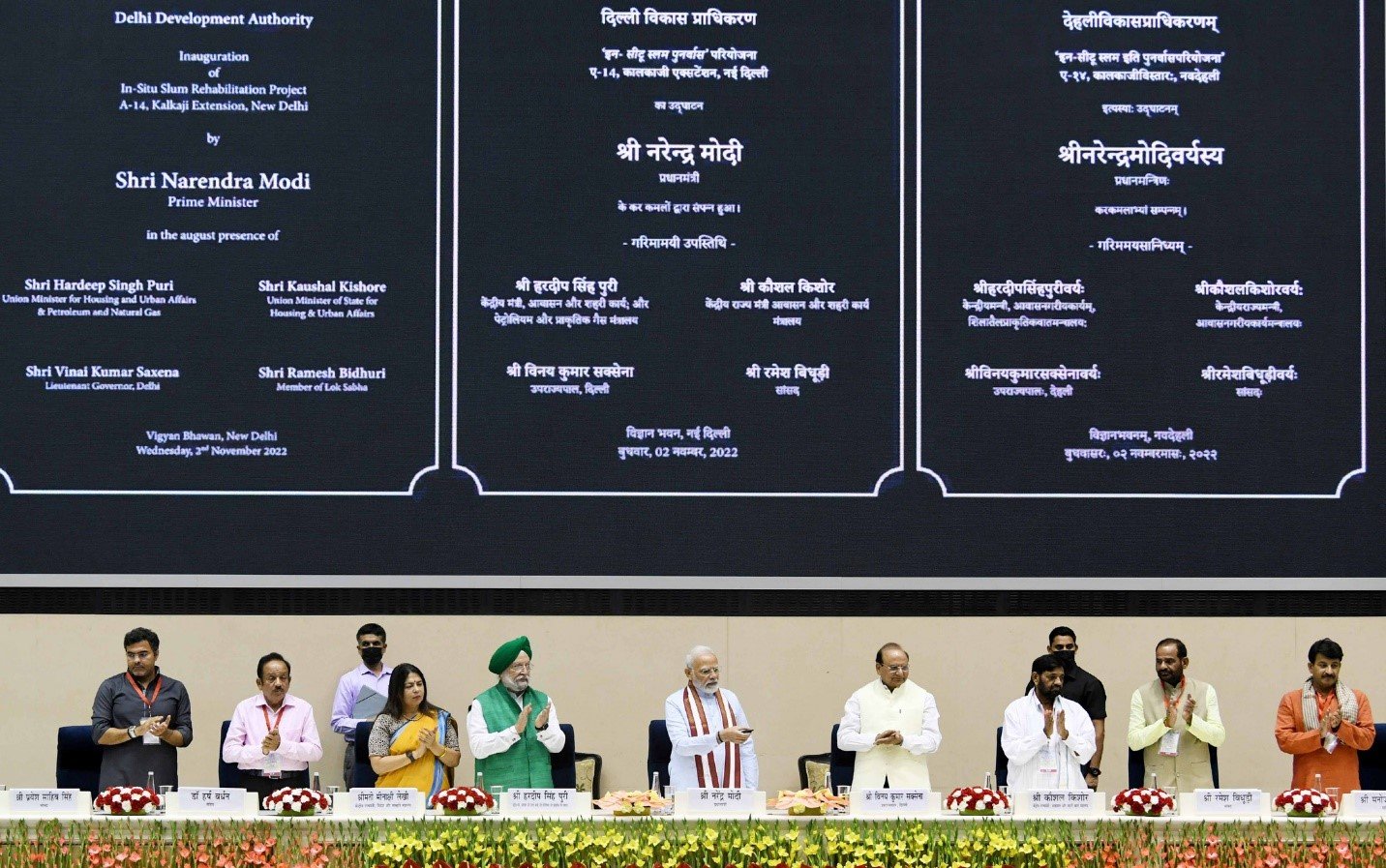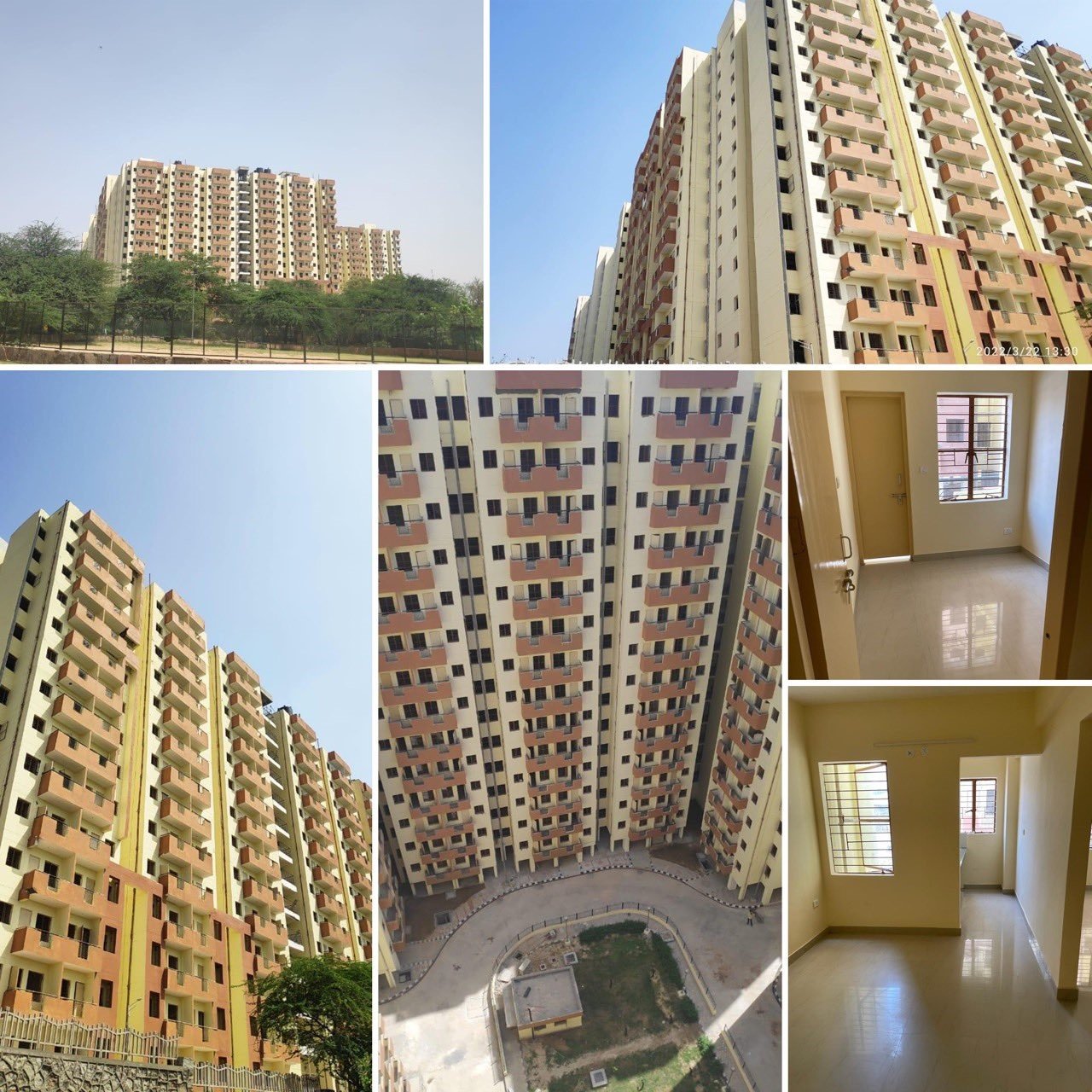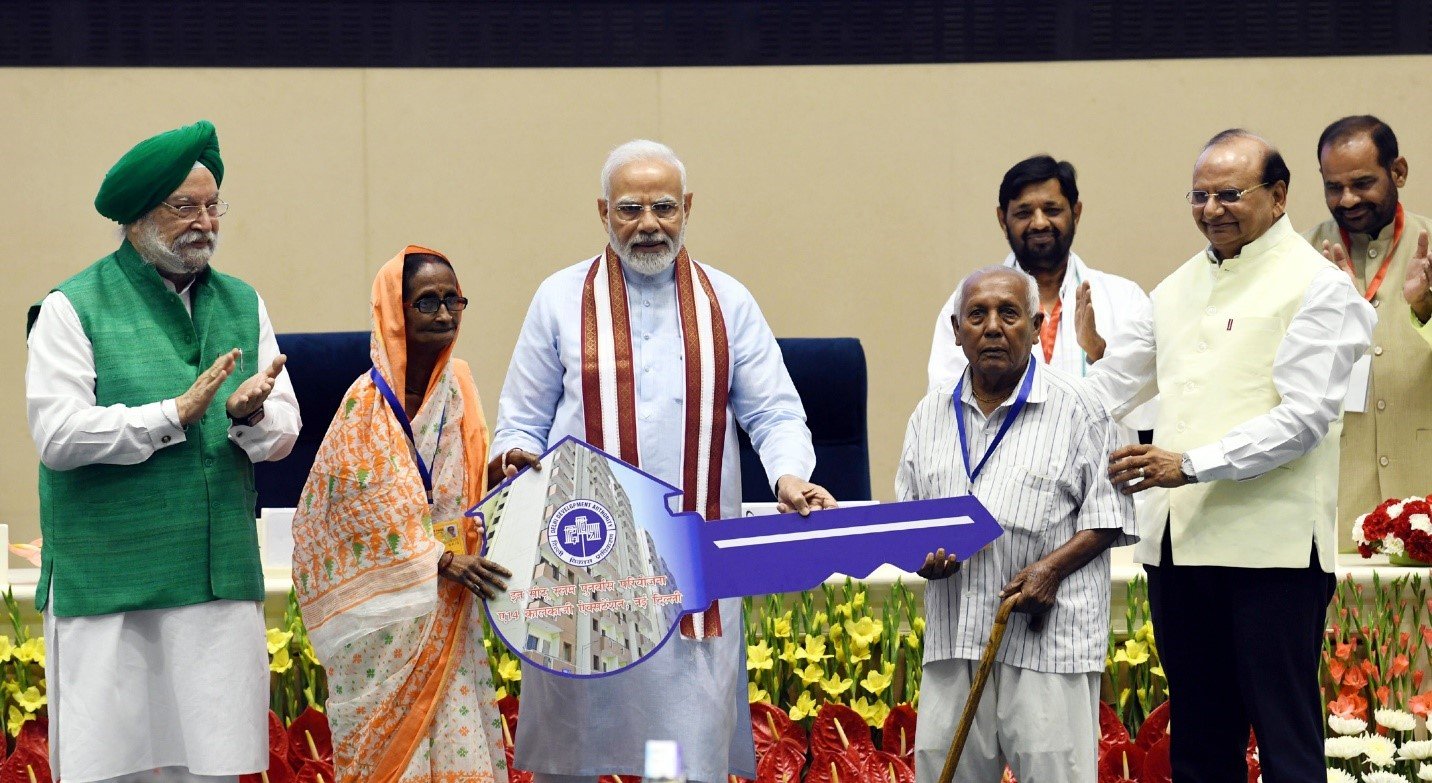Born in the Second World War era, Bihar native Shiv Narayan had arrived in Delhi in 1976 in the middle of the Emergency in search of a better future, and after decades of struggle of living in a slum cluster, the 78-year-old man and his wife received a ‘key’ to their own home on Wednesday.
The couple hailing from Madhubani district, which is renowned for its traditional painting, felt elated and redeemed at the prospect of owning a house as they anxiously waited in the afternoon at Vigyan Bhawan to get the symbolic key to their flat.
Prime Minister Narendra Modi on Wednesday inaugurated 3,024 newly constructed Economically Weaker Section-category flats in Delhi as part of an in-situ slum rehabilitation project.
“It was earlier believed that poverty is for the poor to deal with. Now, they are at the centre of our policies,” Modi said after the inauguration.
The keys to the flats will not only give them the ownership but also a sense of security, a PMO statement had said on Tuesday.
Ahead of the event, beneficiaries expressed joy, a sense of relief, and many said they had never thought they would be able to own a house in their lifetime.
“I came to Delhi from Bihar when the Emergency was still in place. I have struggled like how a blind man struggles to walk. I have seen the JJ camp (Bhumiheen camp) coming up from its early stage. We made our jhuggis with thatches and bamboos. It was wilderness around it,” Narayan told PTI.
His wife, Chandrama Devi, in late 60s, said women had to venture into thick vegetation to relieve themselves due to lack of toilets and that community toilets were built later.
“Now, we will not only have our own house, but our own toilet. We are happy at least our children won’t have to struggle like we did,” she said.
“We have been allotted a flat on the ninth floor of the multi-storey building. We haven’t even seen the flats, but eager to enter it,” Devi said with a smile, adding, their two sons and a granddaughter live with them.

Credit: PIB New Delhi
Most of the residents of the JJ camp were people who had migrated from other states, such as Bihar and Uttar Pradesh, in search of a better future. Many were born in the camp, some women came as brides after marriage, while many others came as infants along with their parents.
Kusum Lata, 50, who came from Uttar Pradesh’s Muzzafarnagar district after marriage, stood in a line outside Vigyan Bhawan, with an invitation card to the event and her Aadhaar card, anxious to collect the symbolic key to her home.
“In JJ colony, we used to get piped water twice a day, morning and evening, and we used to store water in buckets. Now, as women, the biggest relief for us is that we will have our personal toilets,” she said. “We have been allotted a flat on the 12th floor.”
Gudia, 40, a native of Gonda, and Rita Devi, who was born in Jaunpur, both in Uttar Pradesh, had also come to live in the camp after marriage.
Gaya native Ranjit, 42, and Bhagalpur-born Asmita, his wife, flashed their smiles when asked about their new home.
“I had moved to Delhi a few years before our marriage in 2007. We got married in Delhi. And, now we have three children. Now, we will be able to give them a better future,” Asmita told PTI.

Credit: @amitmalviya/Twitter
The 3,024 flats under Phase I have been constructed at a cost of about Rs 345 crore and are equipped with amenities such as vitrified floor tiles, ceramics tiles and Udaipur green marble counter in kitchen.
Public amenities like community parks, electric sub-stations, sewage treatment plant, dual water pipelines, lifts and underground reservoir for hygienic water supply have also been provided, it said.
The Delhi Development Authority has undertaken three such projects at Kalkaji Extension, Jailorwala Bagh and Kathputli Colony. Under the Kalkaji Extension Project, rehabilitation of three slum clusters – Bhoomiheen, Navjeevan and Jawahar camps – are being taken up in a phased manner.
The slum at Bhoomiheen camp will be vacated by rehabilitating eligible households living there to the newly constructed EWS flats. In phase II, the vacated site will be utilised for rehabilitation of Navjeevan and Jawahar camps, the statement said.
Riyasat Ali, another beneficiary, said, “After years of struggle in slums, nothing better than a new flat to begin a new life”.


